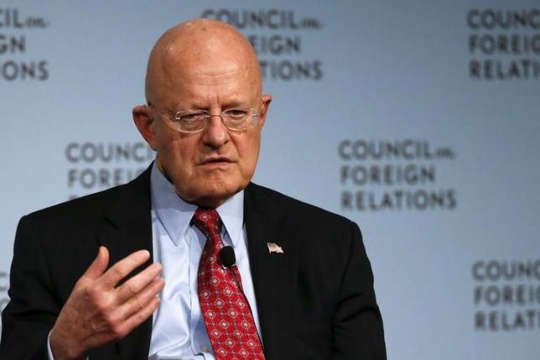Attacks by “homegrown” terrorists are among the most imminent security threats facing the United States in 2016, along with dangers posed overseas by Islamic State and cyber security concerns, the top U.S. intelligence official said on Tuesday.
In his annual assessment of threats to the United States, Director of National Intelligence James Clapper warned that fast-moving cyber and technological advances “could lead to widespread vulnerabilities in civilian infrastructures and U.S. government systems.”
Terrorism remains a top concern in President Barack Obama’s last year in office, Clapper said in prepared testimony before the Senate Armed Services and Intelligence Committees.
Clapper outlined an array of other threats from Russia and North Korean nuclear ambitions to instability caused by the Syrian migrant crisis.
In my 50 plus years in the intelligence business I cannot recall a more diverse array of crises and challenges than we face today
Islamic State poses the most danger among militant groups because of the territory it controls in Iraq and Syria, Clapper said. It also has demonstrated “unprecedented online proficiencies,” he said.
While the United States “will almost certainly remain at least a rhetorically important enemy” for many foreign militant groups, “homegrown violent extremists … will probably continue to pose the most significant Sunni terrorist threat to the U.S. homeland in 2016,” he said, referring to Sunni Muslim jihadists.
“The perceived success” of attacks by such extremists in Europe and San Bernardino, California, “might motivate others to replicate opportunistic attacks with little or no warning, diminishing our ability to detect terrorist operational planning and readiness,” Clapper said.
































